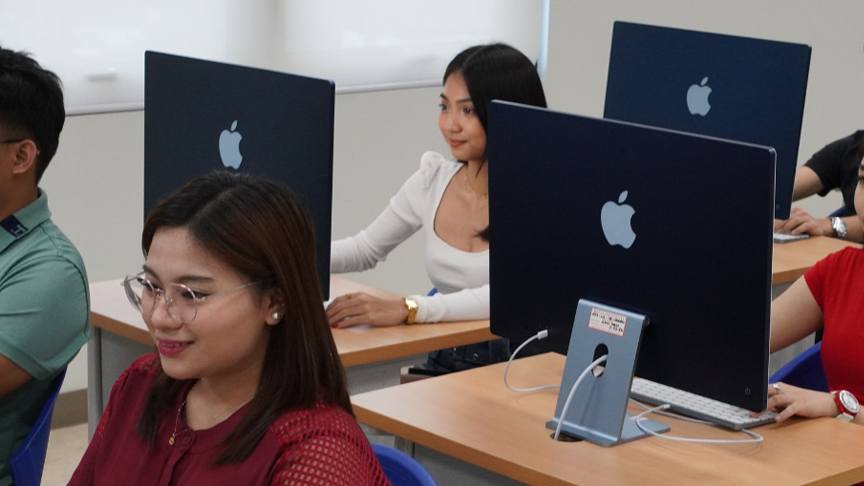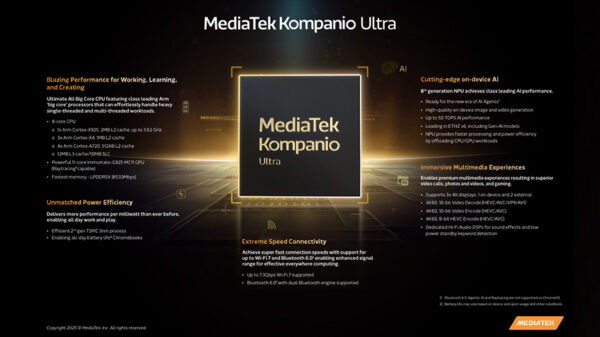Imagine waking up in the morning to find out that you, along with hundreds of other Filipinos, have lost your hard-earned savings overnight because of a perfectly orchestrated cyberattack on your online bank. Although the bank may be able to recover your funds, the fear, wait, and inconvenience during the investigation and processing period can be nightmarish even for those who are well-off. This scenario is just one of the many cybercrimes that could happen here in the country and overseas.
Cyberattacks know no limits and can target and affect anyone at any given time. Especially now that majority of people use smart devices daily to either connect, do business, or study, everyone has become more vulnerable to these threats.
These cyberthreats, and the people behind them, are becoming more cunning. To keep up with technology or outsmart specialists and regulatory bodies, hackers continually upgrade viruses, malware and other tools they use. The richness and vastness of data is just too tempting for attackers to pass up. Since almost everyone is online, huge amounts of electronic data are stored and accessible by computers. Sensitive information like names, addresses, birthdates, social security numbers, financial records, passwords, and intellectual property like trade secrets, research and development, designs, marketing strategies, customer lists, and emails are prone to attacks.
Just how frequent are these cyberattacks? Contrary to what most people think, cyberattacks happen daily. In fact, Mapúa University’s School of Information Technology Dean Ariel Kelly Balan said that in 2023, the Philippines experienced 26.2 million web threats that were detected and blocked. The country also saw the highest number of disruptive cyberattacks in Southeast Asia, with 29% of local organizations reporting 50% and above incidents.
It’s not just financial institutions and government agencies that are attacked. Even universities worldwide are not spared from the onslaught as they are replete of sensitive data and are likely to have complex yet less secure IT infrastructures compared to commercial businesses. Ransomware attacks on higher education institutions rose by 70% in 2023.
He further explained that attacks can be particularly damaging to the reputations, assets, and interest of organizations and even private individuals. These cyber intrusions can be very destructive for sectors particularly the government, finance, healthcare, and education, highlighting the need for robust cybersecurity measures.
“Cybersecurity is an essential safeguard for both people and organizations so they can protect personal or sensitive information and ensure the economic and operational stability of both individuals and institutions. Staying vigilant and adopting comprehensive cybersecurity measures is crucial in today’s digital landscape, and is the driving force of our IT programs,” said Dean Balan.
Aside from frequency, organizations and individuals have to deal with a wide variety of sophisticated and ever evolving threats. These include Malware like viruses and worms that steal proprietary information and disrupt operations; Phishing, which tricks individuals into disclosing passwords or credit card numbers; Denial-of-Service (DoS) Attacks that overwhelm systems, server, or network so they are unusable and disrupts businesses, and Internet of Things (IoT)-Based Attacks that exploit device weaknesses to grab data.
Further, Business Email Compromise (BEC) impersonates executives to trick employees into transferring money or data; Cloud-Based Attacks swipe sensitive information in cloud services; and Supply Chain Attacks target loopholes in supply networks. Institutions may also experience Insider Threats from employees who have insider information; and Social Engineering, where people are manipulated by criminals to divulge information or do tasks to compromise security.
With the myriad of tools used for digital attacks, progressive higher education institutions (HEIs) like Mapúa University have been agile to design and offer programs and courses that develop highly competent cybersecurity experts who are prepared for digital warfare. Its School of Information Technology rigorously trains students to not only become technically adept in the field but have a nose for potential vulnerabilities and understanding of the motivations and tactics of cybercriminals.
Aside from the comprehensive curriculum that puts emphasis on cybersecurity, data protection, and ethical hacking, students are regularly given specialized training and certifications in the University’s Cybersecurity Academy and participate in awareness campaigns and workshops on the latest cyber threats and best practices. They also receive exposure and training with Mapúa’s industry partners Cisco, Huawei, Nexusguard, EC Council, and CompTIA to ensure up-to-date, practical, industry-relevant training. More importantly, they receive liberal hands-on training through practical labs, real-world projects, and research opportunities inside and outside the campus.
To prepare them for the virtual battlefield, these future cybersecurity leaders are taught unique yet industry-relevant courses such as Advanced Threat Detection and Response, Cybersecurity Policy and Governance, Ethical Hacking and Penetration Testing, Digital Forensics, and Secure Software Development. These subjects empower them to master invaluable skills like Risk Management, Incident Response, Cryptography, Network Security, and Cloud Security while honing them in analytical thinking, communication, collaboration and ethics. On top of all these, students receive the full support, guidance, and assistance of the University for them to land promising career prospects once they graduate.
“The common denominator of successful Mapúa IT graduates is that they have the full support of the University in helping them find companies where they can be immersed in real-world challenges and have the opportunity to showcase and contribute their knowledge to create solutions,” added Dean Balan.











































































































